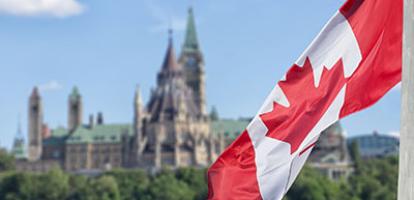Published in the Vancouver Sun on December 30, 2014
By: John Richards
John Richards teaches in the SFU Public Policy School and is a fellow-in-residence at the C.D. Howe Institute, where he holds the Roger Phillips chair in social policy.
B.C. has a successful precedent of introducing a modest carbon tax at the provincial level. During the past month, three important events have, by coincidence, provided an excellent opportunity to take the province’s initiative to the national level.
Our modest proposal is for Prime Minister Stephen Harper to offer the provinces logistical support in mounting a nationwide carbon tax. The revenues accrue to the provinces. Beyond logistical support in tax collection, Ottawa need not be involved.
I begin by reminding readers of three events.
First: in November, OPEC leaders met in Vienna. They agreed not to reduce aggregate oil production, which probably means no foreseeable rise in international oil prices and perhaps a further decline. The international price was over $105 US per barrel in June. It had fallen in August to $95 US. Oil has been selling this week at about $55 US.
Second: the provincial finance ministers met their federal counterpart in Ottawa and again lamented their program costs — health care in particular — were inexorably rising and that they will remain in deficit for the foreseeable future. In the last fiscal year, the cumulative provincial deficit was about $13 billion. Federal Finance Minister Joe Oliver rebuffed their demand for a large new increase in federal-provincial transfers. He advised them — Ontario in particular — to exercise fiscal prudence.
Third: The UN Framework Committee on Climate Change recently reached an interim agreement in Lima, Peru. All member countries, rich and poor, will make public their best efforts to reduce greenhouse gas emissions. These intended national reductions will be examined and revised when the UNFCCC meets in 2015 in Paris. Much as Harper may find climate change a distasteful subject, the world expects Canada to take part in this exercise in a credible manner.
Now the case for this modest proposal:
The logic of a provincial carbon tax should appeal to the Conservatives’ sense of fiscal responsibility. If the provinces want more revenue, let them raise their taxes. To generate revenue from a carbon tax, the provinces must agree on the details of what carbon-emitting activities are to be taxed and at what rates. The Canada Revenue Agency and Finance Department can help with the logistics and if the provinces agree, can apply an equalization formula to distribution of the carbon tax revenue among provincial treasuries.
The provinces might impose a comprehensive carbon tax as B.C. has pioneered. Nonetheless, $100 per tonne of CO2 emissions from gasoline and diesel used as fuel for vehicles would be a good start.
Let’s do the arithmetic:
If we convert from carbon emissions to cents per litre, a $100-per-tonne tax comes to 25 cents per litre. Since August, oil prices have fallen by $40 a barrel about 25 cents per litre. Based on annual sales in Canada of 60 billion litres of gasoline and diesel, a $100-per-tonne carbon tax on these fuels would generate $15 billion, enough to put the provinces in the black, with a little left over.
Faced with this carbon tax, consumers will forgo a price decline in fuel prices, but they would pay gasoline and diesel prices no higher than they did as recently as August.
The provinces gain access to a major new tax base enabling them to fund their social programs more adequately, and without needing to beg from Ottawa.
Without breaking faith with his low-tax goals, Harper refurbishes Canada’s tarnished reputation in environmental circles.
Thomas Mulcair is obliged to congratulate the government for enabling more generous funding of social programs. Elizabeth May is obliged to congratulate the government on a creative response to the Lima conference expectations.
Apart from a few technical complexities, what is there to dislike about this proposal?




